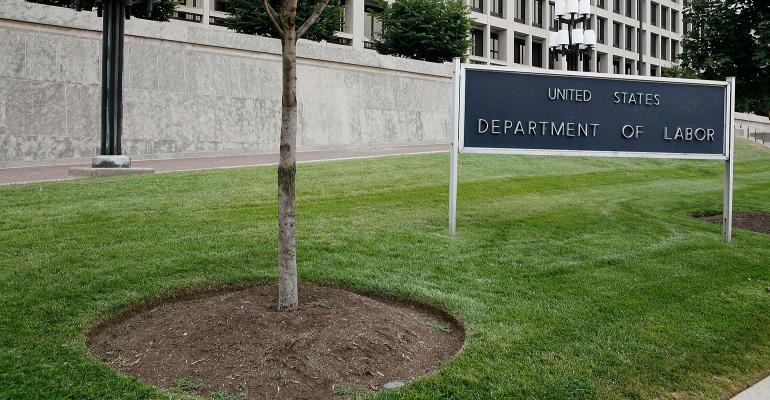The Department of Labor said it would not enforce an arbitration-limitation requirement under the best-interest contract exemption of its fiduciary rule. The news comes just days after the Office of Management and Budget approved a DOL proposal to delay the implementation of BICE for 18 months.
In a Field Assistance Bulletin posted on Wednesday, the department said it would not bring claims against advisors or firms who fail to comply with the private-right-of-action portion of the best-interest contract exemption.
The Justice Department suggested in a court brief in early July that the class-action requirement should not be upheld. The DOL said in another court brief that the provision “will likely be mooted in the near future.”
For supporters of the rule, that private right of action—the ability of clients to file class-action lawsuits against firms that don't follow the rule—is fundamental to ensuring the rule's impact. For detractors, it is the primary point of contention, opening the door, they say, for frivolous but costly litigation as tort attorneys target broker/dealers holding individual retirement accounts.
The bulletin says the move was prompted by an amicus brief filed in a Supreme Court case, which says the U.S. government is no longer defending such class-action provisions.
President Donald Trump signed an executive order in February ordering the DOL to undertake an economic and legal review of the fiduciary rule. That prompted the department to delay the April 10 implementation date to June 9, to complete its analysis.
At the end of June, the DOL issued a request for information, asking for public feedback on what parts of the fiduciary rule should be revised, if any, and whether the January 1 applicability date should be delayed.





